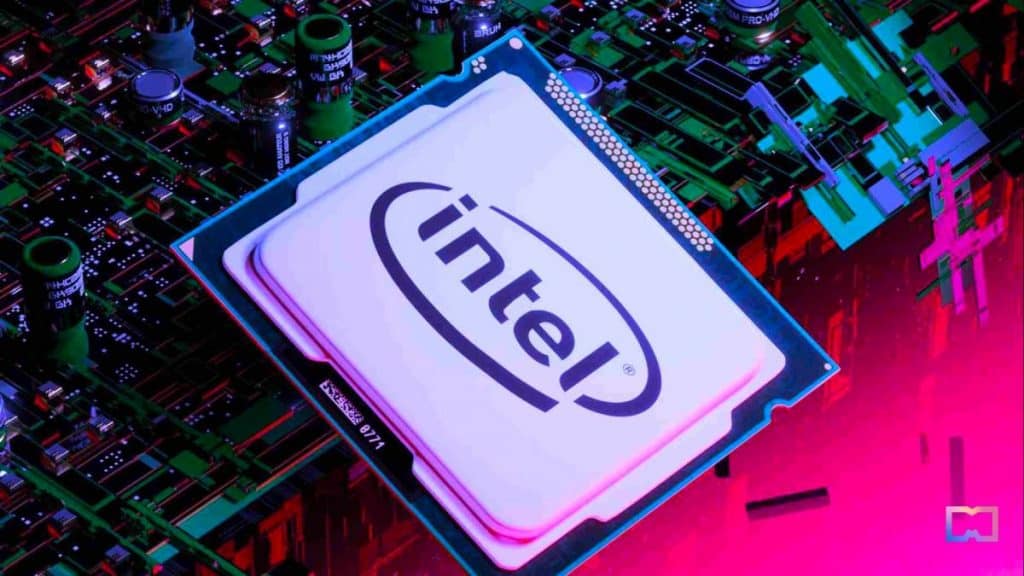EU Commission Reimposes $400M Fine on Intel Over Market Power Misuse


In Brief
The European Commission reissued a $400 million fine on Intel for anti-competitive payments to computer makers HP, Acer, and Lenovo.

In a recent development, the European Commission has again levied a fine of €376.36 million (approximately $400 million) on Intel, a leading player in the computer chip industry.
This fine has been reinstated following the partial annulment of a much larger fine of €1.06 billion in 2022. The new financial penalty comes in response to Intel’s anti-competitive payments made between 2002 and 2006 to prominent computer manufacturers such as Hewlett Packard, Acer and Lenovo.
Intel aimed these payments at thwarting or delaying the release of specific products that used x86 CPUs from competitors like Advanced Micro Devices (AMD).
Intel’s Legal Wrangling
In 2009, the European Commission initially imposed a fine of €1.06 billion on Intel for its attempts to undercut AMD in the x86 CPU market. This fine underwent scrutiny by the EU’s General Court, leading to a partial annulment last year.
The General Court specifically called into question the Commission’s claim that Intel’s rebate strategies had a distortive effect on competition. However, it was said that Intel’s payments to computer manufacturers were an abuse of market power. This led to the scrapping of the original fine and the imposition of the new €376.36 million penalty.
While the fine focuses on payments made nearly two decades ago, it raises pertinent questions about market behavior and fair competition in the tech industry. The Commission’s action against Intel also underscores the increasing scrutiny that big tech firms are facing for alleged anti-competitive practices, not only in Europe but globally.
Moreover, this is not an isolated event for Intel. The U.S.-based chipmaker has previously filed a claim for €593 million, further complicating its legal tangle in Europe.
A Warning for Big Tech
The reinstatement of this hefty fine on Intel is a clear signal to corporations about the EU’s commitment to ensuring fair competition in markets. As large tech companies continue to dominate various sectors, the question remains whether such fines will serve as a deterrent or merely a cost of doing business.
With Intel having undergone both the imposition and annulment of billion-dollar fines, the stakes are high not just for the chipmaker but also for its competitors and the tech industry at large. The Commission’s latest decision sets an important precedent, potentially affecting future antitrust actions against dominant market players.
Disclaimer
In line with the Trust Project guidelines, please note that the information provided on this page is not intended to be and should not be interpreted as legal, tax, investment, financial, or any other form of advice. It is important to only invest what you can afford to lose and to seek independent financial advice if you have any doubts. For further information, we suggest referring to the terms and conditions as well as the help and support pages provided by the issuer or advertiser. MetaversePost is committed to accurate, unbiased reporting, but market conditions are subject to change without notice.
About The Author
Nik is an accomplished analyst and writer at Metaverse Post, specializing in delivering cutting-edge insights into the fast-paced world of technology, with a particular emphasis on AI/ML, XR, VR, on-chain analytics, and blockchain development. His articles engage and inform a diverse audience, helping them stay ahead of the technological curve. Possessing a Master's degree in Economics and Management, Nik has a solid grasp of the nuances of the business world and its intersection with emergent technologies.
More articles

Nik is an accomplished analyst and writer at Metaverse Post, specializing in delivering cutting-edge insights into the fast-paced world of technology, with a particular emphasis on AI/ML, XR, VR, on-chain analytics, and blockchain development. His articles engage and inform a diverse audience, helping them stay ahead of the technological curve. Possessing a Master's degree in Economics and Management, Nik has a solid grasp of the nuances of the business world and its intersection with emergent technologies.






















































